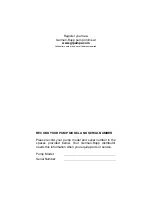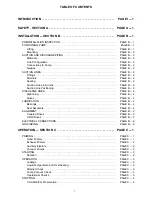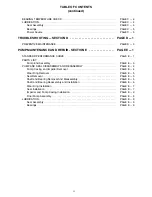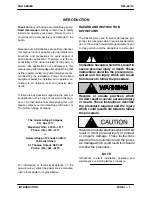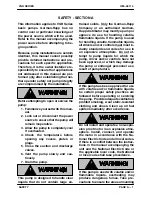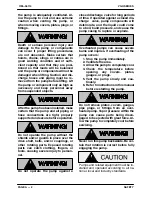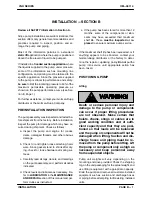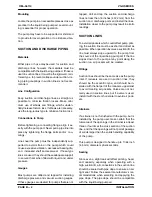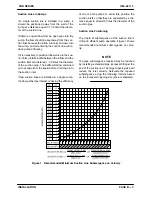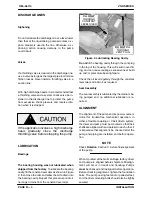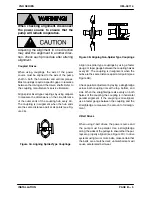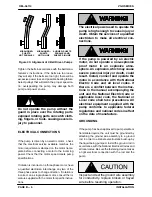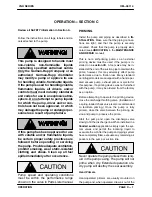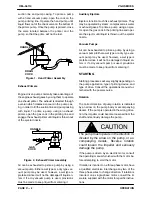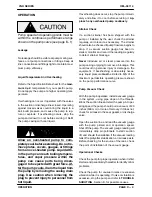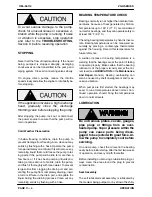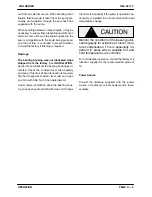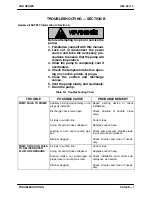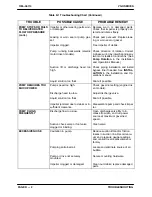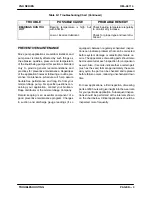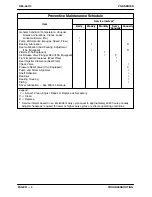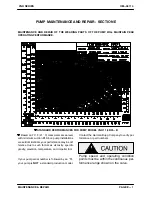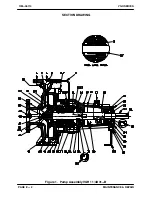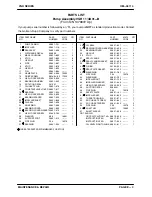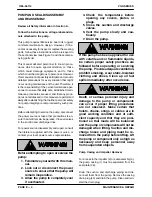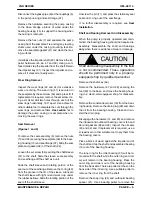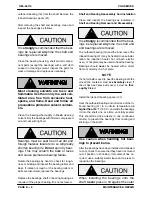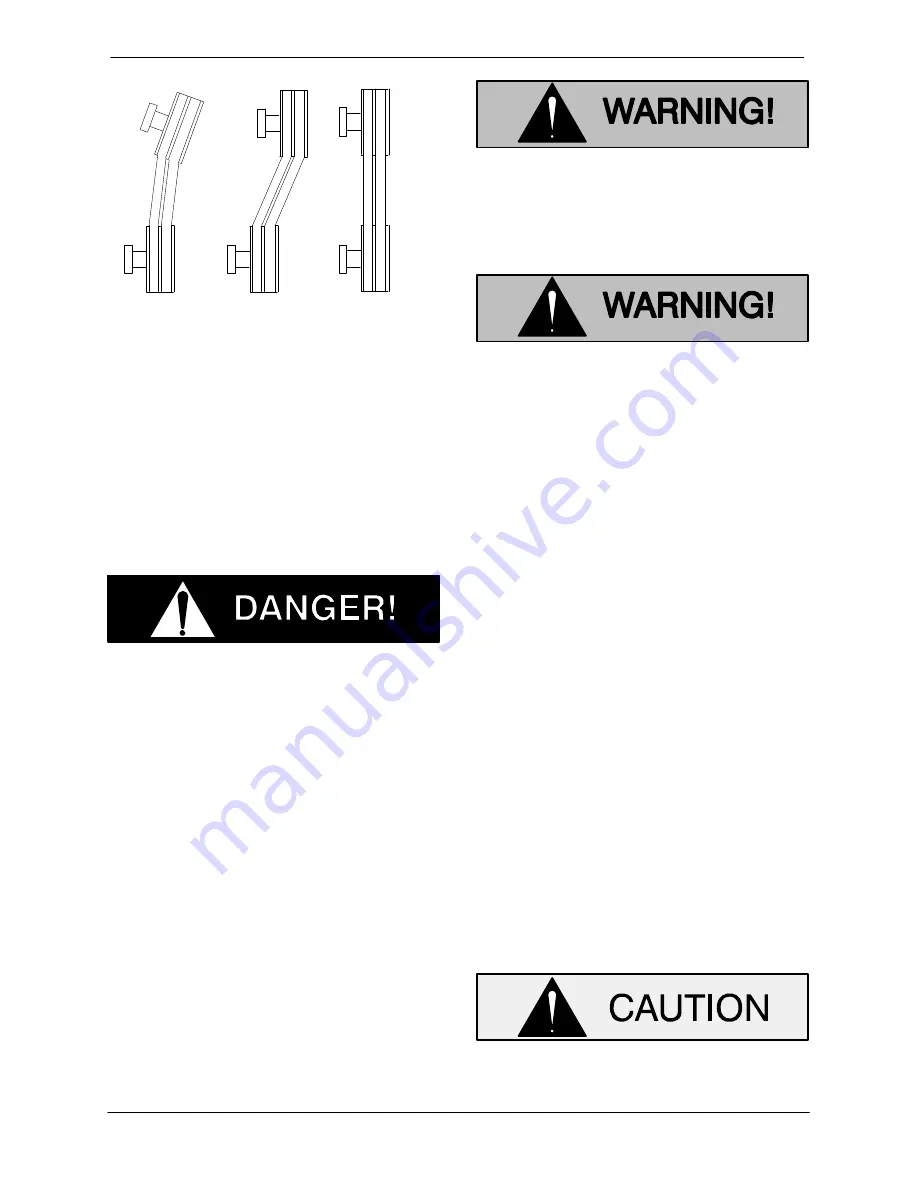
OM-06114
VGH SERIES
PAGE B - 6
INSTALLATION
MISALIGNED:
SHAFTS
NOT PARALLEL
MISALIGNED:
SHAFTS
NOT IN LINE
ALIGNED: SHAFTS
PARALLEL AND
SHEAVES IN LINE
Figure 3C. Alignment of V‐Belt Driven Pumps
Tighten the belts in accordance with the belt manu
facturer's instructions. If the belts are too loose,
they will slip; if the belts are too tight, there will be
excessive power loss and possible bearing failure.
Select pulleys that will match the proper speed ra
tio; overspeeding the pump may damage both
pump and power source.
Do not operate the pump without the
guard in place over the rotating parts
.
exposed rotating parts can catch cloth
ing, fingers, or tools, causing severe in
jury to personnel.
ELECTRICAL CONNECTIONS
If the pump is driven by an electric motor, check
that the electrical service available matches the
motor requirements stamped on the motor name
plate before connecting a motor to the incoming
power. Check that the motor speed meets pump
specifications.
If rotation is incorrect on a three‐phase motor, have
a qualified electrician interchange any two of the
three phase wires to change direction. If rotation is
incorrect on a single‐phase motor, consult the lit
erature supplied with the motor for specific instruc
tions.
The electrical power used to operate the
pump is high enough to cause injury or
death. Obtain the services of a qualified
electrician to make all electrical con
nections.
If the pump is powered by an electric
motor, do not operate a non‐explosion
proof motor in an explosive atmo
sphere. An explosion, which may cause
severe personal injury or death, could
result. Install, connect and operate the
motor in accordance with the National
Electric Code and all local codes. If
there is a conflict between the instruc
tions in the manual accompanying the
unit and the National Electric Code or
applicable local code, the National or
Local code shall take precedence. All
electrical equipment supplied with the
pump conforms to applicable federal
regulations and national codes in effect
on the date of manufacture.
GROUNDING
If the pump has been approved to pump volatile or
flammable liquids, the unit must be grounded by
attaching the ground wire assembly to a ground
rod in order to eliminate electrostatic build‐up by
the liquid being pumped. Install the ground rod in
accordance with the National Electrical Codes and
all local codes. Be sure the fastening device makes
a tight electrical connection with the rod and the
pump.
Inspect and test the ground wire assembly
for conductivity. replace broken or frayed
wire before resuming operation.


